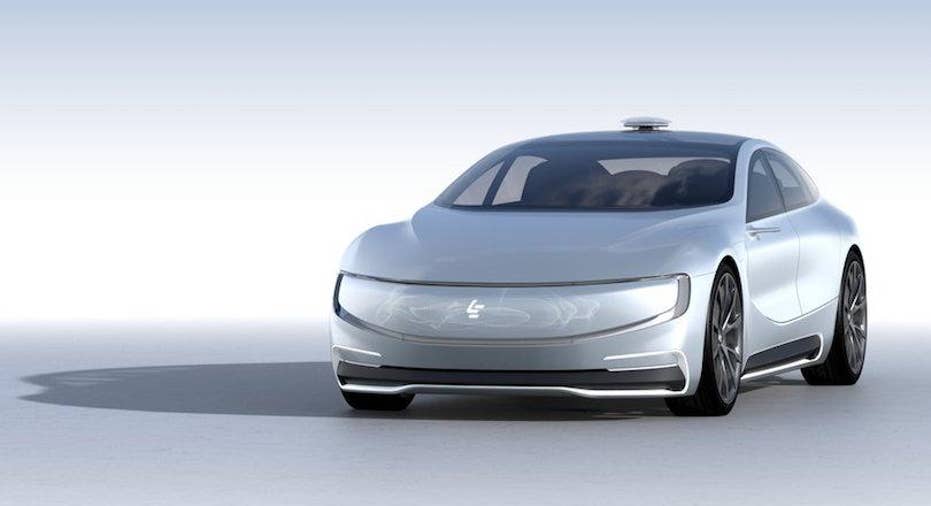LeEco Buys Vizio, and Thus the US Market

If you can't beat 'em, buy 'em. After banging its head against the impenetrable US market for a little while, the "Netflix of China" LeEco decided to buy its way in, picking up California-based TV maker Vizio for $2 billion. This will help LeEco put its TVs in our living rooms, its phones in our hands, and its cars on our roads.
The US market isn't the only reason to buy Vizio, but it's a big one. Vizio only had a 3.43 percent global market share for TV sales in 2015, according to Statista, but it has a market share over 20 percent here in the US, according to Variety.
While politicians rail about how many US products are made in China, our nation has been tough going for Chinese brands, especially in terms of mobile phones and cars. Hisense and TCL are both strong players in TVs here in the US. But LeEco (formerly LeTV) isn't just a TV company; it also makes phones, it intends to make cars, and it wants to sell both.
Several of China's most globally powerful phone brands, including Huawei, Xiaomi, Meizu, and Oppo, have either zero or near-zero sales to our 350 million-strong, smartphone-obsessed population. Much of that is politics, and more importantly political risk. About 90 percent of phones here in the US are sold through carriers. They don't see the point of taking a chance on a new Chinese vendor, and possibly getting politically pummeled, when they can play it safe and order up the latest from Samsung or Alcatel.
The Nokia ProblemBut it's also about the Nokia Problem. Nokia was once the world's No. 1 smartphone maker, but sold poorly in the US because it insisted on a centralized, global decision-making process while US carriers wanted specific, personal attention and customized products. (Sony has had the same problem here, for years.) Even Samsung still customizes its products for US carriers, if subtly.
Alcatel and ZTE, the two Chinese phone makers to succeed here in the US, have shown that a locally focused approach works. Both companies staffed up their US units with plenty of American talent and gave them broad local decision-making powers. The result has been a strong presence by both companies in carriers' prepaid lineups.
I don't know much about the trends in US big-box retail, but I suspect they're as relationship-oriented as the carriers. While LeEco does a great business selling TVs online in China, Americans tend to want to check out those kinds of purchases in person before buying, meaning you need a retail presence. It's a lot easier to buy into an existing relationship than to try to build one from scratch.
Phones, TVs, and CarsLeEco wants to be a player in phones. It wants to be a player in TVs. It wants to finance and make movies. It wants to be a player in all sorts of things; when I visited its booth at CES this year, I rode on a "smart bicycle" the company was showing off.
But LeEco has also been saying it would come to the US since mid-2015, and it hasn't, even though it's been staffing up a strong US social and PR team. Clearly, its carrier and retail relationship-building efforts haven't been working out so far. Vizio, on the other hand, has the relationships. It's US-based and US-founded, with a strong bond with our No. 1 retailer, Walmart.
All of this sets the stage for a long-term plan of LeEco's, to become a car company. The firm unveiled an autonomous concept car earlier this year, and it's an investor in another car company, Faraday Future. Note that I'm not talking about where the cars are made. Foreign carmakers make cars in the US; Buick makes cars in China. Rather, US consumers and dealers have rejected Chinese car brands so far, no matter where they're made.
As ZTE and Alcatel have shown, the hybrid approach can work. Americans want to be special. We want products made for us, preferably designed here. LeEco's purchase of Vizio means that it's now a player.
This article originally appeared on PCMag.com.



















